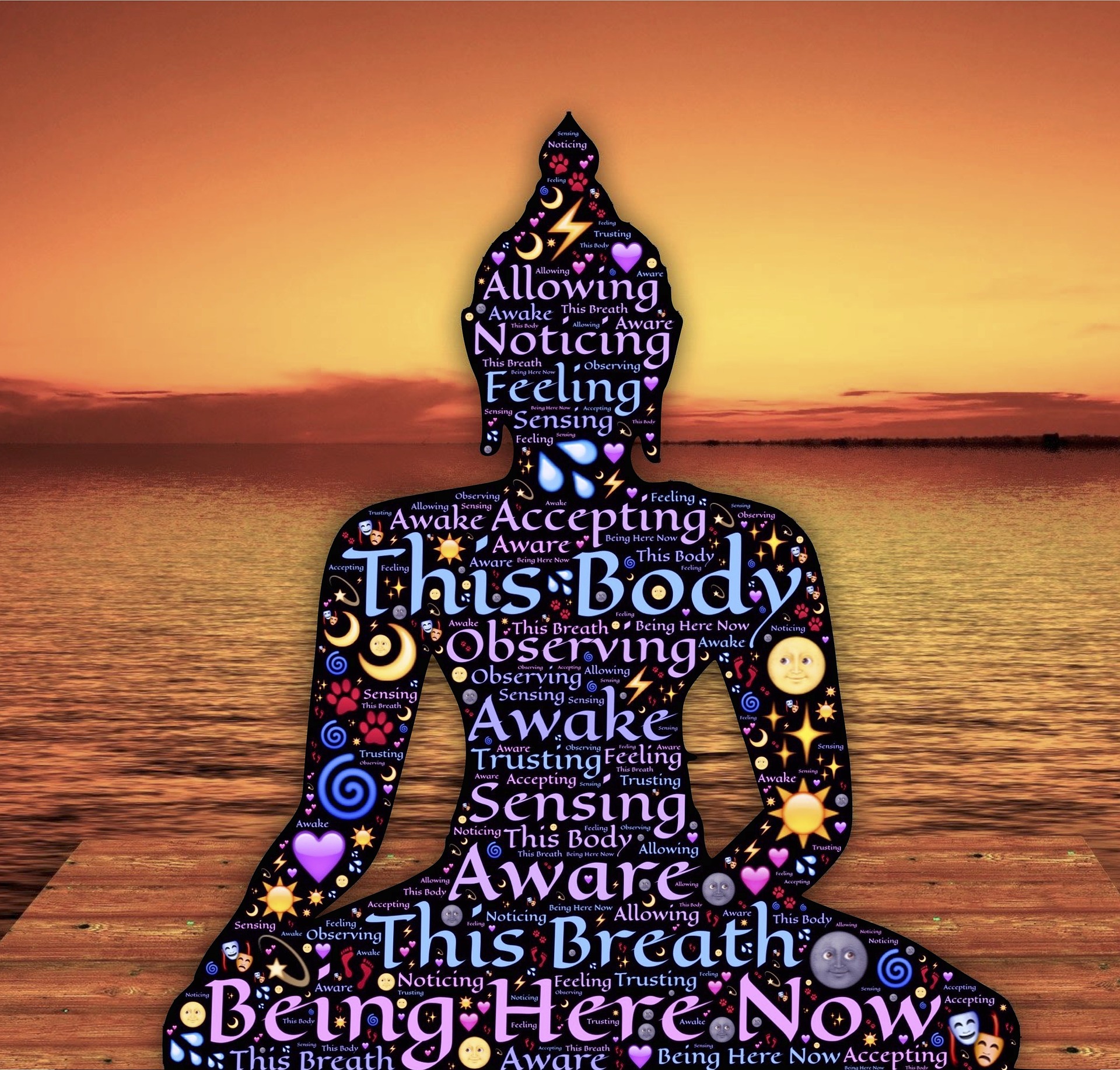 I love participating in workshops. If I didn’t live up in Alaska, which is unfortunately a workshop wilderness, I’d probably be completely broke from being a workshop junkie. Here’s the thing, what I love about them is the opportunity to step out of the chaos of my householder life, settle into my own rhythm for a few days, and reconnect with myself while making new connections with others.
I love participating in workshops. If I didn’t live up in Alaska, which is unfortunately a workshop wilderness, I’d probably be completely broke from being a workshop junkie. Here’s the thing, what I love about them is the opportunity to step out of the chaos of my householder life, settle into my own rhythm for a few days, and reconnect with myself while making new connections with others.
I don’t like “talky” workshops; I want interactive, engaging, and experiential.
And that’s what I got this past weekend at a breathing and mindfulness retreat. For those that want the punch line here are the two big takeaways:
1) proper breathing requires filling the belly and literally breathing all the way down through your pelvic floor
2) the breath is the center of my universe, with the space between the inhale and exhale being the connection to consciousness and experience of Oneness.
For some of you this might sound pretty airy fairy. That’s okay, you’re released to move on to the next blog or return to your Facebook feed.
For those of you who are serious about upping your midlife game and stepping into the most powerful tool I have yet to encounter for shifting into unlimited possibility, stick with me.
I’ve known for years about the importance of proper breathing and how it can be the portal to great knowing. The problem was that I only really knew it intellectually. I needed to get it into my body through an experiential retreat in order to truly embody this ancient wisdom.
The challenge is that most of us don’t really know how to breath. We take in the breath unconsciously, we fill our lungs by expanding our chest, and we often keep it pretty shallow. That’s not really breathing, that’s just surviving.
If you want to deepen your breathing you’ve got to get your belly involved. That can be a challenge for many western men because we’ve been taught to keep our gut sucked in, abdomens clenched and forever battle ready. But being tight in our abdomen forces us to breath in our upper body, which keeps our breathing shallow and forced. Sometimes shallow breathing is okay when we’re doing it consciously, but rarely is it good when it’s part of our regular, autonomic breathing pattern.
There are many great resources out there on the importance of proper breathing so I won’t make this a how-to. Here are a couple of resources I’ve come across recently that you might want to check out:
Dan Brule’s book Just Breathe. Dan is a member of the Midlife and Thriving FB group so we’ve got a local resource!
This interview of Belisa Vranich is a quick tutorial on the right way to breath and the importance of having a proper breathing technique.
Once you’ve got good technique, you’ll find that the breath is intense. Working with my breath over the weekend I found that I was able to quickly center myself in challenging situations, I found moments of deep clarity about my life purpose, I tapped into a deep source of wisdom and information to help bring answers to long-held questions.
Want to figure out how to make an important decision or handle an issue? Breathe, ask your question, then listen.
Want to know what’s really important in a situation and how to create an outcome in alignment with your values? Breathe, then listen.
Want to know how to regain a feeling of connection when you’re feeling isolated and alone in the world? Breath.
It’s like having your own internal Magic 8-Ball. You know the ones where you ask your question, shake it up, then wait for the answer to come mysteriously floating up through the dark purple liquid. Sure, sometimes you get an initial answer of “Ask your question again.” But if you stick with it, focus on breathing and letting go, the answer will arise – maybe from your heart, maybe from your gut, maybe from your mind, or perhaps even from pure consciousness.
Metaphorically the breath connects us to so many things: the expansion and contraction of the Universe, the cycle of death and rebirth, the ebb and flow of the tides. The All is contained within us through our connection to the breath and how we experience it in each moment.Â
Ease, internal sense of peace, and connection are just a few of the experiences and sensations I had over the weekend and that I am taking with me back to the chaos of my householder life. I’m also returning with an embodied knowledge that conscious breathing creates an infallible connection to the deep wisdom of my body and to the present moment. Both are powerful tools for my continuing midlife transformation and growth.
To step into a deeper experience of self and your unlimited potential you just have to get into your breath and focus on the space between. It really is that simple and you can start doing it right now.
How are you breathing today?


 How we can use our multiple brains to make difficult decisions
How we can use our multiple brains to make difficult decisions I spent much of my adult life living under the spell of a deceit. I thought that I was being myself, living my truth, living life on my terms …
I spent much of my adult life living under the spell of a deceit. I thought that I was being myself, living my truth, living life on my terms … How Tales From the Past Spark Adventures of the Future
How Tales From the Past Spark Adventures of the Future It was a powerful weekend, the third retreat for my men’s group this year. With each retreat it feels like I reach into new layers of understanding and push through more of my self-inflicted fears and shame.
It was a powerful weekend, the third retreat for my men’s group this year. With each retreat it feels like I reach into new layers of understanding and push through more of my self-inflicted fears and shame.
 Before I became a coach for men in midlife I never gave much thought to my values. Don’t worry, my internal conscience, Jiminy Cricket, has kept me morally on the straight and narrow. By values I don’t mean morals or virtues. I’m speaking here about the deep-seated motivators that make us unique and who we are at our core as men.
Before I became a coach for men in midlife I never gave much thought to my values. Don’t worry, my internal conscience, Jiminy Cricket, has kept me morally on the straight and narrow. By values I don’t mean morals or virtues. I’m speaking here about the deep-seated motivators that make us unique and who we are at our core as men.
 Having difficult discussions with your fellow Americans can help close the rifts that keep us divided.
Having difficult discussions with your fellow Americans can help close the rifts that keep us divided.
Recent Comments